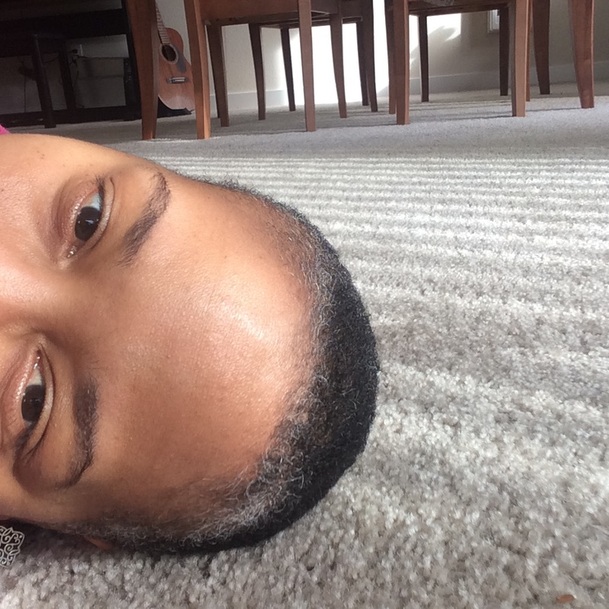|
I was rereading my journal a few weeks ago, when I came across the following line: I’m so tired and scared that I literally can’t think straight When I wrote those words, I was at the end of a long stretch in which I’d uncharacteristically overworked myself. I’d consciously chosen to work every day, for too many hours, for several weeks in a row, but was resentful about it. Having to do so was unexpected, undesired, and—as my journal entries repeatedly insisted at a nearly audible whine—Not. My. Fault. I can’t believe that [expletive] [expletive]. If that [expletive] hadn’t [expletive] done what they did, I [expletive] wouldn’t have to be…you get the point. I was doing what needed to be done, but I was bitter and exhausted. More importantly, I was getting scared. Not completing the task I was working on would have had a concretely negative impact on me. But I was quickly reaching the limits of my capacity to push myself, and the end was nowhere in sight. The question wasn’t whether or not I’d run out of steam; it was when. And it terrified me to imagine what the consequences would be when that happened. What struck me when I read that line was how it perfectly expressed a problem that we don’t talk much about. One that, in truth, I’ve been avoiding talking to you about for a long while. What do you do when you just can’t go anymore? When your levels of anxiety and fatigue are so high that, no matter the consequences, you just don’t have the energy to keep working? This situation is different from just having too many things on your plate (although it’s a difference of degree, not kind). When you’re overwhelmed with too many tasks, the problem is a straightforward one of demand being out of proportion to capacity. As a coach, it’s relatively easy to help someone out of this situation, as there are concrete, simple strategies for managing an overgrown to do list. While they’re not easy to implement, they’re nearly foolproof once they’re in place. But this strategy is much less helpful once you are frightened and exhausted. And that’s because when you’re afraid, especially for long periods of time, you don’t think as clearly. Similarly, working to the point of exhaustion negatively affects your memory, concentration, mood, and judgment. In other words, once you’ve hit the bottom, planning and reflective strategies aren’t going to work because you’re physiologically incapable of doing them. It’s not a matter of will or grit. At some point, your body and your mind turn off, and the things you need to do are just not possible. When you reach this point—when you Just Can’t Even—you have to use a different strategy to move forward. It’s one I’ve wanted to write about before, but have hesitated to bring up, because I know you’re not going to like my suggestion. I mean, I don’t even like my suggestion (‘cause frankly, it’s one I have to work at constantly, and I hate every minute of it). But that doesn’t change the fact that, as far as I can tell, the best strategy when you’re too exhausted and frightened to work is: Surrender. Everything in me rises up against myself as I write those words. Everything in me cringes when I imagine the look on your face as you read them. That’s because, like many of you, I typically see surrender as a form of submission. Of defeat. Of submitting to the will of some outside enemy, some opponent I’m sworn to resist. This notion of surrender makes me sick to my stomach. (And—I don’t know if this is a quirk of mine or if other scholars do this too—but whenever I consider what works in one situation, my mind always thinks of what the implications would be if applied in my field. Mine being black politics, you can see why Surrender might be a problem). But there is a different connotation to the word Surrender, one that’s much more in line with what I’m advocating. Surrender also involves abandoning oneself to something. Giving oneself entirely to a set of circumstances. The idea here is not that we are in conflict with some external, dominating force. But that we are already in the midst of something we should stop trying to resist. I deliberately use the word Surrender instead of acceptance because of the strength of the term, it’s wretched thoroughness. To accept is to allow something to exist or occur. To surrender is to give in to it entirely. There is a completeness in Surrender. There is concession. There is a yielding of control. It’s exactly that lack of control that many of us find so disturbing. And yet admitting to it, and working with it, is absolutely necessary—not just in our work, but in the rest of our lives as well. But one thing I’ve learned is this: To admit that you cannot control something is not the same as saying that you have no agency. It is merely admitting that your will alone does not direct the universe. So if you decide to practice Surrender, there are better and worse ways to do it. What you don’t want to do is Surrender to your fears. In other words, don’t throw up your hands because everything feels impossible. Don’t sabotage yourself by alienating yourself from others, or pretending your deadline doesn’t exist. And do not, under any circumstances, believe the lie your scared self is spouting that you’re not cut out for this work. Fear is useful, not necessarily because of its accuracy, but because of its attention grabbing capacity. That hour-long blank stare at the computer screen is a sign, billboard high, in bright neon lighting, telling you that you need to change something if you want to eventually continue working. What you want to do instead is Surrender to your needs. That is, you want to figure out what will alleviate your exhaustion and fear and give that to yourself, immediately and abundantly. If you are too tired, even to think clearly about what you need, your first need is clearly rest, so cancel class and sleep all day (and no, you don’t have to explain why). If you’re panicked about a job talk and can’t stop crying, call a friend (or a therapist, or a pastor, or your fam) and let them talk you down from the ledge. If you’re terrified that the press is going to take away your contract because you’re late with the manuscript (that’s right—you’re not the only one who thinks this), find a colleague you trust and ask them if they’ve ever been late submitting to the press. Then, as my grandmother used to say, “Hide and Watch” while they tell you how many extensions they requested for their award-winning book. In other words, don’t try to plan or strategize or analyze. Just feel what you need and give it to yourself. I know, I know. Surrender doesn’t involve getting any work done, at least not immediately. But here’s what I am saying to you: when you’re that tired and that scared, you can’t work anyway. No matter how hard you try. No matter how much you want it. The voice in your head that’s insisting you could if you just tried harder, that voice is a thief and a liar. Surrender isn’t going to reduce the amount of work you have to do. But it is going to help you reduce the amount of suffering you feel about the work you’re already not doing. Meditation practitioners commonly use a phrase that kind of gets at what I mean, one I despised when I first read it, but for which I have developed a sullen and begrudging appreciation: The phrase is “Give up all hope of fruition,” which they encourage successive shortening of, from “Give up all hope of fruition.” to “Give up all hope.” “Give up all.” “Give up.” And finally, “Give.” I hated this phrase when I first read it, turned my nose up at the defeat I thought it represented. Over time though, I’ve come to see the less obvious idea behind it: that instead of constantly striving for the imagined future in which we’ll be thinner, kinder, smarter, more organized, we should learn to give ourselves to the present moment. Even more relevant is its implied instruction about the value of Surrender when you’re too beat down, too tired, too out-of-breath terrified to keep grinding away at your work: it’s not about giving up. It’s about giving in. It’s about giving--to yourself. Want the monthly InkWell blog delivered straight to your inbox? Subscribe to Inkling, a bite-sized, monthly newsletter filled with ideas, inspiration, and information for academic writers.
Ellen Berrey
10/31/2016 04:25:00 pm
Very refreshing and honest. Thank you, Michelle!
Michelle
10/31/2016 04:27:35 pm
Thanks Ellen! That's another outcome of being that tired--you can't write anything but the truth, lol!
Timone Davis
11/13/2020 10:48:06 am
The picture for this post says it all!
Michelle Boyd
11/13/2020 12:00:08 pm
Right???? lol
Lorena
11/13/2020 12:52:21 pm
YES! Something I needed to read and consider as a I try to wrap up this week and realize, I am exhausted in so many ways. That I Can't Even...
Michelle
11/13/2020 02:01:44 pm
Lorena, I feel you!!! 11/13/2020 06:24:58 pm
This really struck a cord with me. It summarizes very well my feelings the past few months up to today when the election results were called by the news media outlets.
Michelle
11/17/2020 01:45:23 pm
So glad to hear it Marie--and I hope the solutions strike a cord as well!
Megan
11/18/2020 09:39:18 pm
I have a quote above my desk from Byron Katie that reads: "I am a lover of what is, not because I'm a spiritual person, but because it hurts when I argue with reality." Sure, I'm a little embarrassed by this quote, but I am way more liberated by it. ;-)
Michelle
11/20/2020 02:57:28 pm
LOVE this. Don't be surprised if it shows up in the newsletter :) Comments are closed.
|
|
© 2018 InkWell Academic Writing Retreats
|

